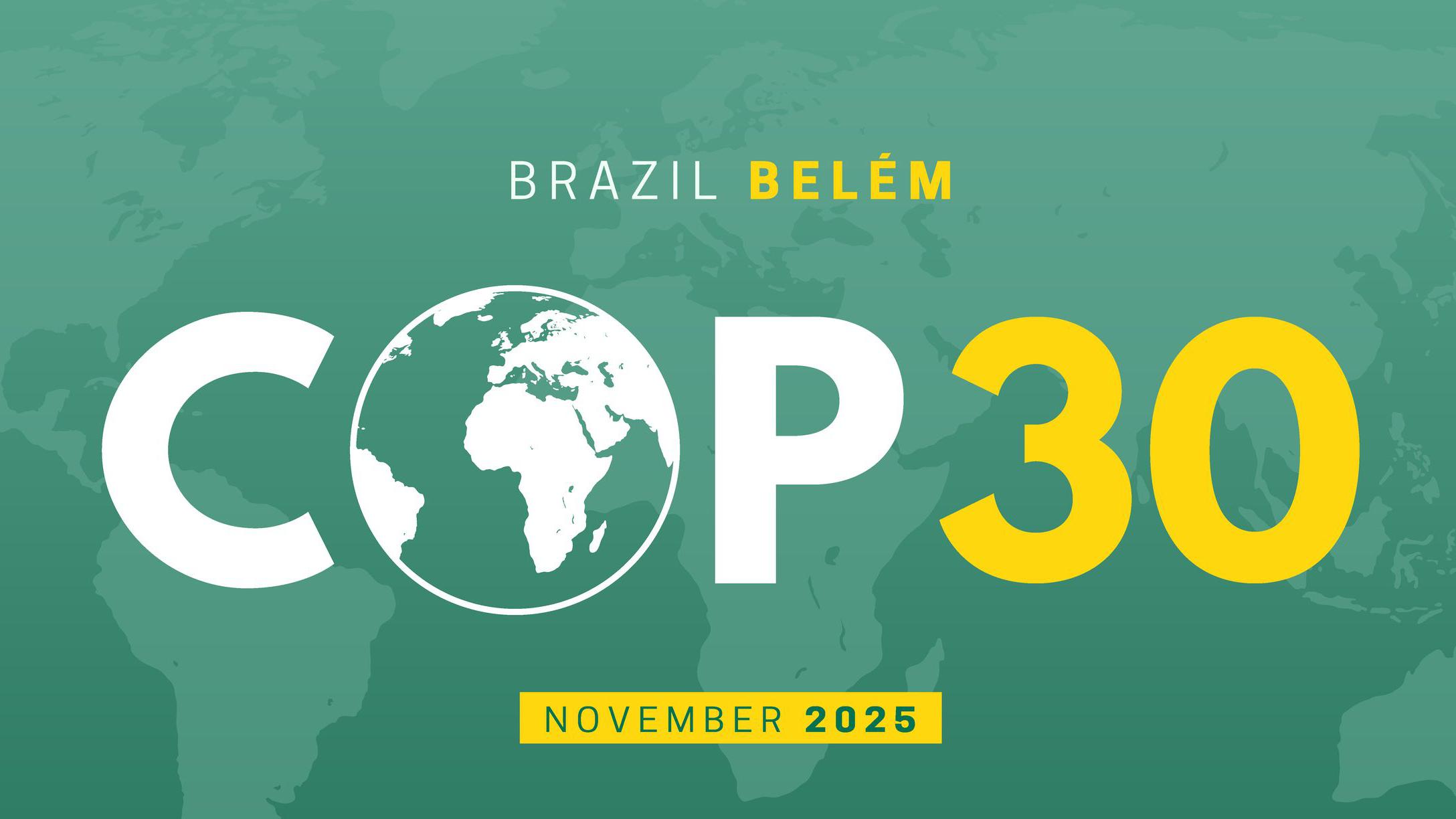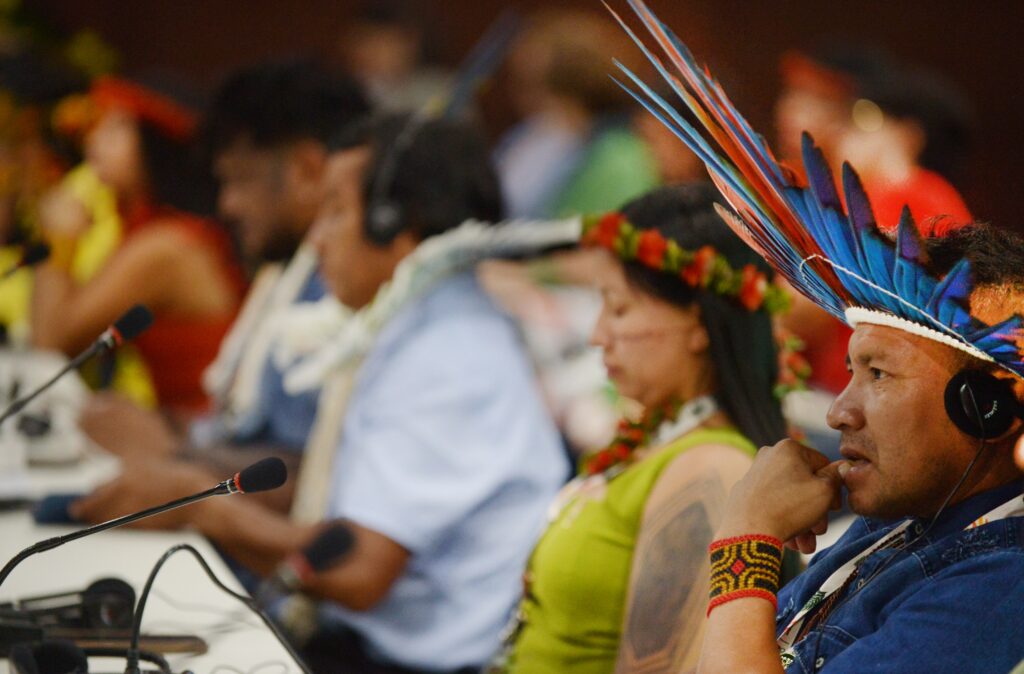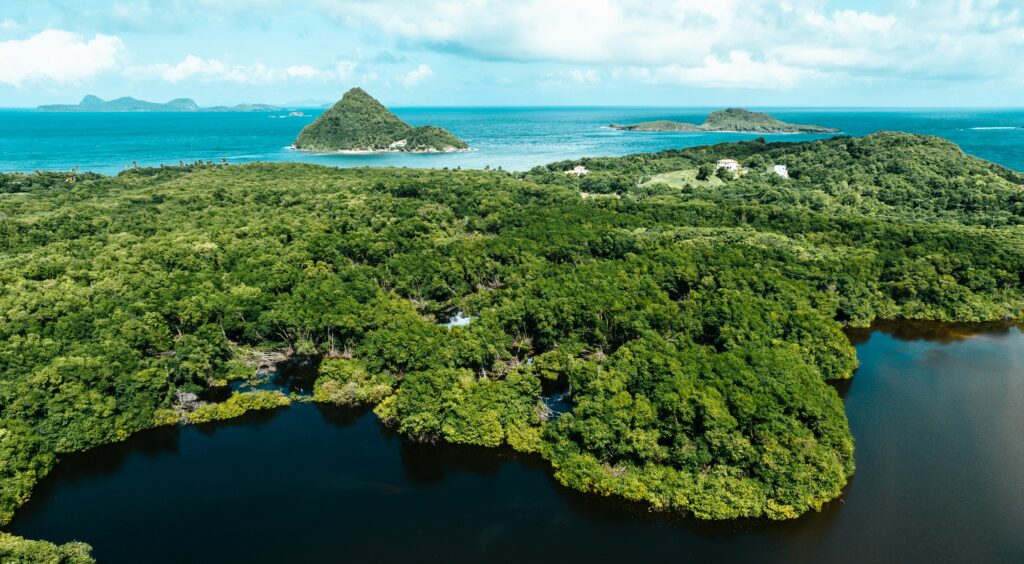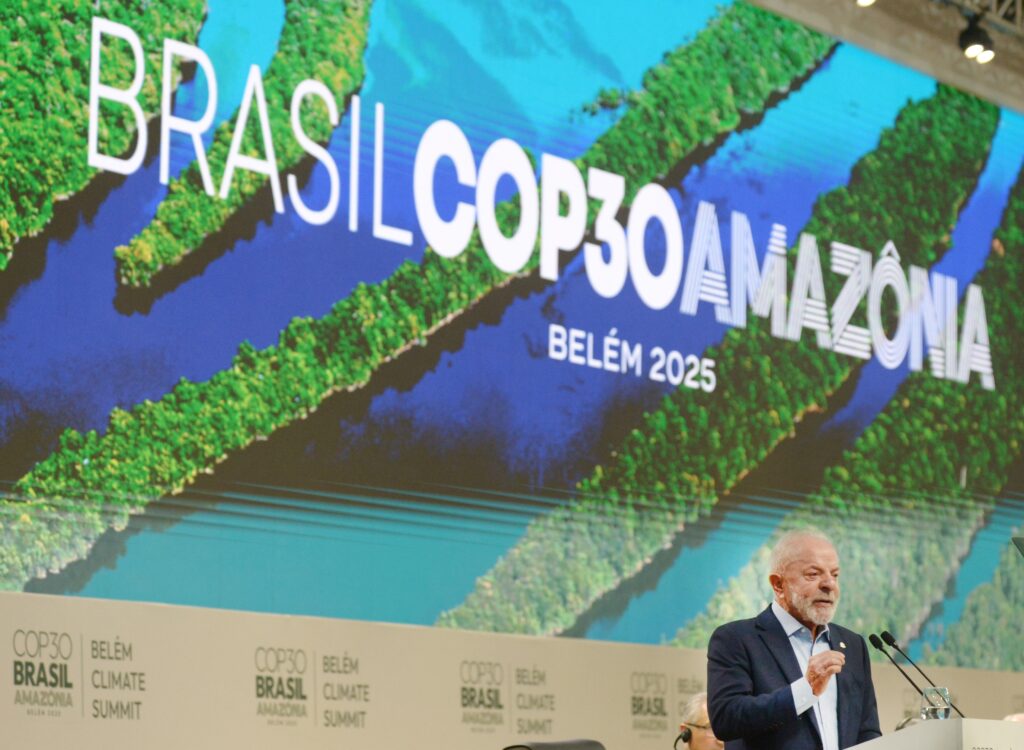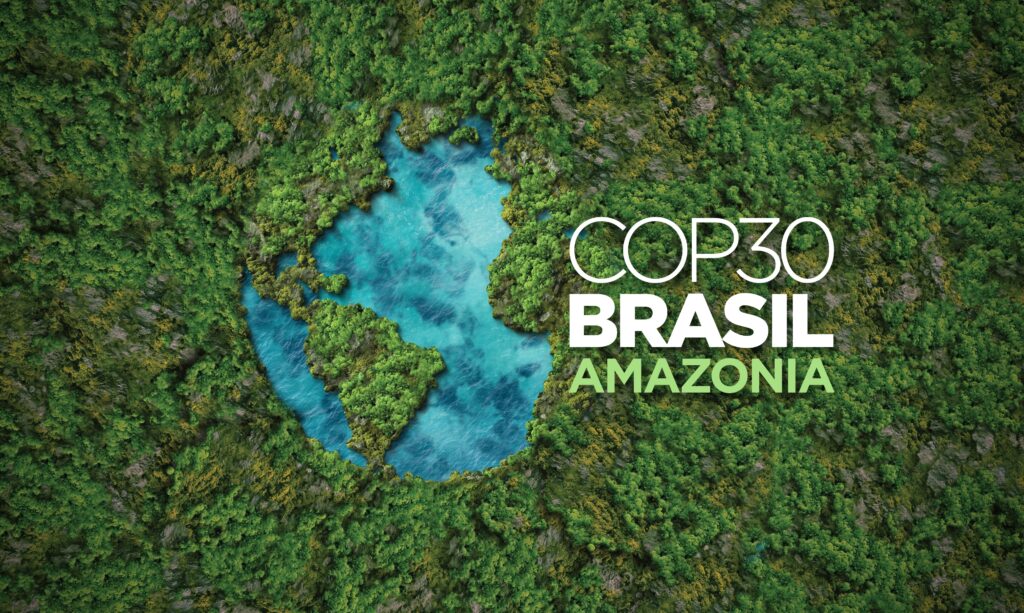COP30 outcomes are landing at a strange moment for climate politics. On the one hand, the UN Executive Secretary of the UNFCC, Simon Stiell, says COP30 Brazil has “racked up an impressive scorecard of real-world climate actions,” including a trillion-dollar push into clean energy and power grids and a global plan to quadruple sustainable fuels. On the other hand, the science is still clear that current policies put us on course for roughly 2.5 to 2.9°C of warming this century, far beyond the Paris 1.5°C goal. It will be impossible to pull this back without phasing out fossil fuels.
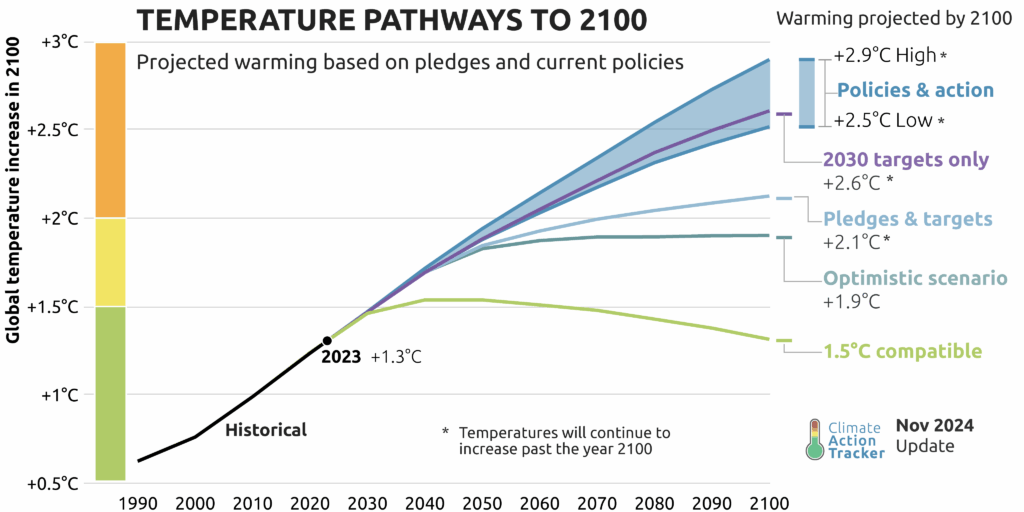
For developing nations already experiencing record heat, flooding and stronger typhoons, the question is whether COP30’s progress moves the needle fast enough.
Forests and Food Systems at COP30 Brazil
One of the clearest COP30 outcomes is the launch of the Tropical Forests Forever Facility (TFFF), Brazil’s flagship forest finance mechanism. At COP30, Brazil and partners announced more than USD 5.5 billion in initial pledges, while 53 countries endorsed the TFFF launch declaration. This includes 34 tropical forest nations that together hold over 90% of tropical forests in developing countries.
The facility aims to grow into a USD 125 billion blended fund. Estimates show that this will generate roughly USD 4 billion a year to reward countries that keep deforestation low. At least 20% of payments are earmarked for Indigenous peoples and local communities.
The timing of this fund matters. Brazil’s own monitoring shows deforestation in the Amazon fell by about 30.6% between August 2023 and July 2024. However, scientists warn that forest degradation from fires and logging is still surging.
If the TFFF works as advertised, it could stabilise protection gains in the Amazon, the Congo Basin and Southeast Asia over the course of decades. These major carbon sinks not only play a critical role in mitigation but are also an important part of these developing nations’ adaptation strategies.
Agrifood Systems, Regenerative Landscapes and Rural Livelihoods
Forests are only half the land story. Under the COP Action Agenda on Regenerative Landscapes (AARL), more than 40 organisations reported over 9 billion USD in committed investments to shift farming systems toward regenerative practices. These commitments are expected to cover over 210 million hectares (2.1 million square km) and reach about 12 million farmers across more than 100 countries by 2030.
Brazil also launched a new RAIZ accelerator to restore degraded farmland and align public and private finance around climate-resilient, nature-positive production. If these initiatives deliver, they can reduce emissions from land use, protect water resources and stabilise food systems that millions depend on. But they sit outside the binding UNFCCC negotiating tracks, so the real test will be whether national policies on subsidies, land rights and rural credit actually align with these pledges.
Fossil Fuels and Energy: Momentum Without a Roadmap
On energy, the COP30 outcome ended in an uneasy compromise. The final agreement boosts finance but never names fossil fuels, even though more than 80 countries pushed for a clear global roadmap to phase them out.
Instead, Brazil’s COP30 president said he will issue a separate, non-binding “roadmap” on transitioning away from fossil fuels. This will rely on his authority as COP president, but it is outside the UN decision text and therefore not agreed to by all 195 parties. This decision carries political weight but has no legal force.
What This Means for the Energy Transition
This outcome sits far from what science says is needed. The International Energy Agency’s net-zero roadmap shows that keeping 1.5°C in reach means cutting fossil fuel demand by more than 25% by 2030 and around 80% by 2050. This pathway has no room for new oil, gas or coal projects.
By refusing to embed even a basic fossil fuel transition pathway in the core decision, COP30 climate summit leaves the heavy lifting to national policies and voluntary alliances. For many developing economies, this keeps the global 1.5°C target alive on paper, but without the shared roadmap that would help lock in a faster, fairer energy shift.
Climate Finance and the Adaptation Finance Gap
On finance, Belém focused on money rather than stronger near-term mitigation. The deal builds on the USD 300 billion NQCG goal agreed to at COP29 by calling to mobilise at least USD 1.3 trillion per year by 2030. It also focuses on much-needed support for climate adaptation.
Tripling Adaptation Finance
The COP30 outcome “would triple total climate finance for developing nations by 2035” and calls on rich countries to at least triple the money they provide for adaptation by that date. In parallel, negotiators agreed on a political goal to raise adaptation finance to USD 120 billion a year, but pushed the deadline back by 5 years to 2035. Additionally, it left out a baseline year, a clear target and any rule on who must pay.
That matters because developed countries only just passed USD 115.9 billion in total climate finance in 2022, with just USD 32 billion of that going towards adaptation. The UN estimates developing countries already need USD 215-387 billion per year for adaptation alone this decade. Even if the new pledges are met, the gap between promises and needs in climate-vulnerable countries stays wide.
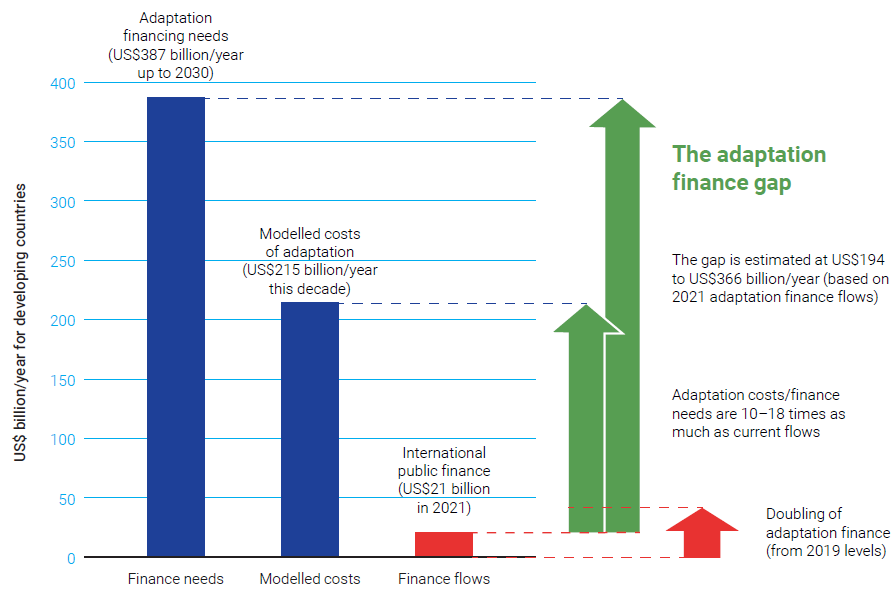
Carbon Market Regulation
COP30 2025 also inched forward on carbon markets. Countries agreed to finally close the Paris Agreement Crediting Mechanism and transfer about USD 26.8 million from its trust fund to help launch the new Article 6.4 crediting mechanism. This includes up to USD 5 million for capacity building in developing countries.
Additionally, the Declaration on the Open Coalition on Compliance Carbon Markets was launched. Brazil, the EU, China and others joined the coalition to align and eventually link national carbon pricing systems, improve transparency and reduce the risk of double-counting credits as markets develop. This is one of the first major international agreements on regulating the carbon market.
If this coalition delivers high-integrity rules and links carbon prices across major economies, it could channel larger, more predictable flows into clean energy and forest protection projects.
Health Is Becoming a Climate Priority
One win at the UN climate change conference COP30 is that health has moved to the centre of climate policy. Brazil and the WHO launched the Belém Health Action Plan (BHAP). It is the first adaptation framework focused on health systems, built around climate-informed surveillance, evidence-based policy and innovation. Additionally, the new Climate and Health Funders Coalition pledged around USD 300 million in initial funding for climate and health research, early warning systems and health system adaptation.
Nearly half the world’s population, about 3.3 to 3.6 billion people, already live in highly climate-vulnerable contexts. The WHO estimates that 1 in 12 of the world’s 200,000 hospitals could face a total shutdown due to extreme weather under high-emissions scenarios.
Outlook: A Mixed Scorecard for Climate Action
Taken together, COP30 outcomes delivered some real steps forward, but sidestepped the core driver of climate change. On the positive side, areas historically overlooked, such as health, adaptation and carbon markets, are finally gaining the focus needed for more holistic climate action. However, without a fossil fuel phaseout, climate change will keep accelerating, making adaptation harder and climate costs steeper.
The next test is whether governments, businesses and leaders turn these partial gains into binding policies and real projects. At the same time, governments need to reevaluate their energy systems and take concrete action in decarbonising them, even without a binding international agreement.
Eric Koons
Writer, United States
Eric is a passionate environmental advocate that believes renewable energy is a key piece in meeting the world’s growing energy demands. He received an environmental science degree from the University of California and has worked to promote environmentally and socially sustainable practices since. Eric has worked with leading environmental organisations, such as World Resources Institute and Hitachi ABB Power Grids.
Eric is a passionate environmental advocate that believes renewable energy is a key piece in meeting the world’s growing energy demands. He received an environmental science degree from the University of California and has worked to promote environmentally and socially sustainable practices since. Eric has worked with leading environmental organisations, such as World Resources Institute and Hitachi ABB Power Grids.

